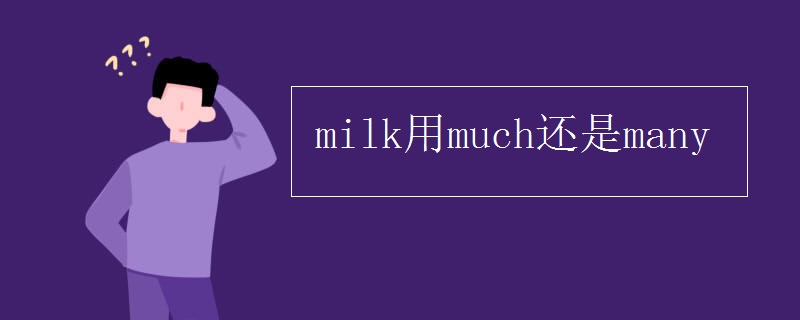-
-
many和much两者都表示“许多”,many修饰或代替可数名词(复数),与few(少数)相对;much用来修饰或代词不可数名词(单数),与little(少量)相对。milk是不可数名词用much修饰,much milk表示许多牛奶。

much的用法
(1)-How much milk do you drink in the morning? -A bag.
-你早上喝了多少牛奶?-一袋。
(2)There is much milk in the bottle.
瓶里有很多牛奶。
(3)Do you have much money left?
你剩的钱多吗?
(4)He doesn’t spend much time preparing his lessons.
他备课不花太多时间。
many的用法
(1)Did you see many people there?
你在那儿看见许多人了吗?
(2)Many poets have died young.
许多年轻诗人很年轻就死了。
3.关于many of和much of
其后接名词时,该名词通常应是特指的(比如有the,these,those,my,ours,Tom’s等修饰)
(1)Many of his ideas were amusing to her.
他的许多想法使她感到有趣。
(2)He spends much of his time outdoors.
他很多时间都在户外度过。
(3)Much of the land was flooded.
大片土地被水淹没。
如果名词没有表特指的限定词,通常就不用of。
(1)She didn’t eat much breakfast.
她没吃多少早餐。
(2)There aren’t many large glasses left.
大玻璃杯剩下的不多了。